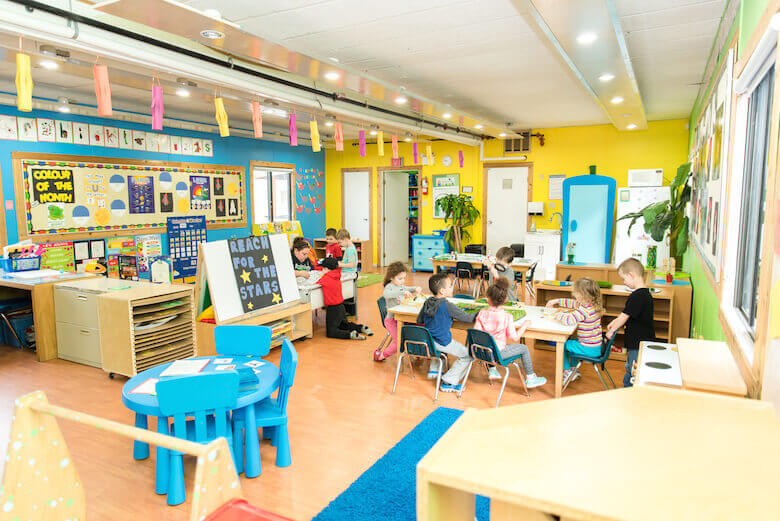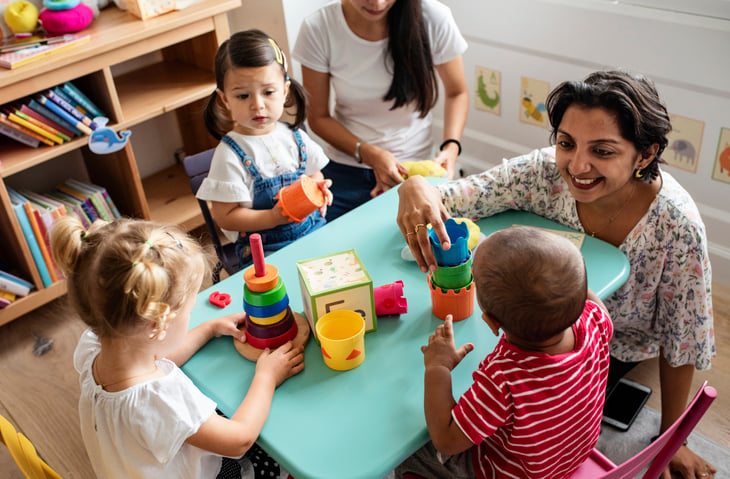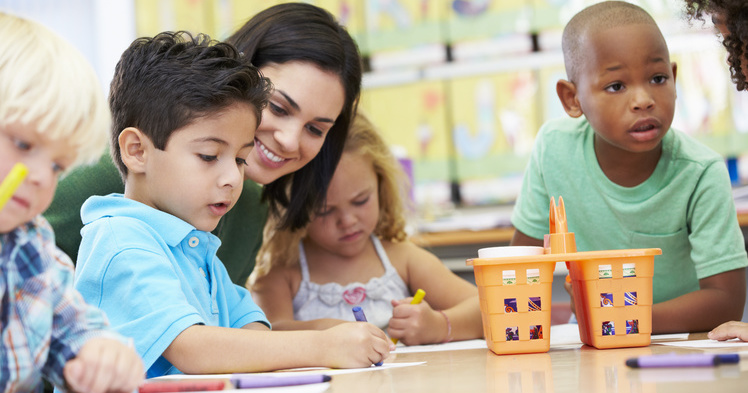How Childcare North York Promotes Cognitive And Emotional Growth
Wiki Article
The Function of DAYCARE in Fostering Social Skills and Very Early Knowing
Childcare functions as a considerable environment for little ones, assisting in vital social interactions that advertise very early learning. In this structured setup, youngsters engage with peers and caretakers, creating vital communication and teamwork skills. As they browse play and different activities, they learn to deal with disputes and build emotional intelligence. Recognizing the nuances of these interactions reveals the profound effect day care has on a kid's advancement, shaping their future partnerships and scholastic preparedness. What details abilities do children acquire in this setting?The Significance of Social Communication in Daycare
While many parents acknowledge the value of very early childhood education, the role of social interaction in childcare is frequently ignored. Childcare settings offer youngsters with very useful chances to engage with peers, promoting crucial social abilities. During these formative years, children learn to browse different social characteristics, such as sharing, participation, and dispute resolution. Connecting with varied age and personalities enhances their capacity to adjust to various settings and develop compassion in the direction of others.
Building Communication Skills With Play
Play serves as a powerful tool for kids to develop important communication abilities in daycare settings. Via different play tasks, kids engage in discussions, share their thoughts, and learn to listen to others. Role-playing games, for instance, encourage them to utilize language in various contexts, promoting vocabulary expansion and understanding of social signs.
Additionally, storytelling throughout playtime enables youngsters to convey emotions and concepts, helping them develop narrative skills and self-confidence in their verbal expressions. Overall, play not only acts as a pleasurable pastime yet likewise as an essential platform for creating the communication skills necessary for effective social interactions in later life.
Motivating Participation and Teamwork
Collaboration and team effort are essential skills that kids can grow in day care settings. Through numerous group tasks, such as building jobs or joint games, kids discover to share responsibilities and work toward usual goals. These interactions promote an understanding of the relevance of listening to others, discussing roles, and jeopardizing when essential.In day care settings, caregivers frequently develop possibilities for children to engage in teamwork by encouraging them to join team jobs. This not just helps children develop social bonds however also grows a feeling of belonging and neighborhood.
As they browse these participating experiences, children acquire important understandings right into the characteristics of dealing with peers. They discover to appreciate diverse viewpoints and recognize that each participant adds distinctly to the group effort. Inevitably, these early lessons in collaboration and synergy lay the groundwork for healthier partnerships and reliable collaboration in future social and academic settings.
Structured Learning Activities and Cognitive Growth
Structured knowing activities play an integral duty in fostering cognitive advancement in young kids (Child Care Near Me). These tasks, that include problems, storytelling, and hands-on experiments, promote important reasoning and analytic skills. In a day care setup, structured learning urges youngsters to involve with their peers, improving their capacity to procedure information and recognize various principles
Via guided play and interactive jobs, kids develop foundational abilities such as numeracy and literacy. As an example, activities focused around numbers can assist youngsters understand mathematical concepts, while storytelling enhances language procurement and comprehension. In addition, structured learning enables instructors to evaluate developing progress and tailor activities to individual discovering demands.

Including a varied series of organized activities not only advertises cognitive development but likewise prepares youngsters for future academic success. By offering a balanced setting that fosters exploration and query, daycare programs play a vital function in forming the cognitive capabilities of young learners.
Cultivating Emotional Knowledge and Self-confidence
Emotional knowledge and confidence are vital components of a youngster's growth, enhancing the cognitive abilities promoted with structured knowing activities. In childcare setups, youngsters are supplied with chances to reveal their feelings and participate in social communications, which are essential for building emotional recognition. Through assisted play and team tasks, children discover to identify their feelings, recognize those of others, and create empathy.Moreover, communication with caregivers and peers aids to grow self-worth and strength. Positive reinforcement and support from adults empower kids to take risks and face difficulties, promoting a sense of achievement. As they navigate social dynamics, children construct confidence in their capacities to connect, team up, and solve problems - Daycare North York. This caring setting permits the gradual growth of emotional intelligence, which is crucial for future social partnerships and general well-being. Consequently, day care plays a substantial duty in cultivating both emotional knowledge and self-confidence in little ones
Often Asked Questions
Just How Can Parents Choose the Right Daycare for Their Child?
Moms and dads ought to take into consideration aspects such as place, staff credentials, safety and security criteria, educational program, and examines from other parents when selecting the appropriate day care for their youngster, guaranteeing it lines up with their kid's developmental requirements and family members worths.
What Age Is Finest for Beginning Childcare?

How Does Childcare Influence Children's Actions at Home?
Day care often positively affects kids's habits at home by improving social abilities, promoting freedom, and motivating psychological policy (Childcare North York). Because of this, youngsters check here may exhibit better communication and participation, bring about even more harmonious family dynamicsAre There Any Type Of Drawbacks to Day Care Presence?
Yes, there are downsides to daycare presence, including prospective separation stress and anxiety, direct exposure to illnesses, and irregular caregiving. These factors can affect a kid's psychological health and change at home, influencing general family members dynamics.Exactly How Can Parents Assistance Social Skills Learned at Day Care?
Moms and dads can sustain social skills learned at childcare by assisting in playdates, urging cooperative activities, modeling favorable communications, talking about sensations, and strengthening sharing and interaction in the house, consequently improving their child's social advancement and self-confidence.Childcare offers as a significant setting for young children, promoting crucial social interactions that promote early understanding. Childcare settings provide children with important chances to engage with peers, cultivating crucial social skills. Play serves as a powerful tool for youngsters to develop critical interaction skills in day care settings. In day care settings, children are provided with chances to express their feelings and involve in social communications, which are vital for constructing emotional awareness. Daycare commonly favorably influences kids's behavior at home by improving social skills, advertising freedom, and encouraging emotional law.
Report this wiki page